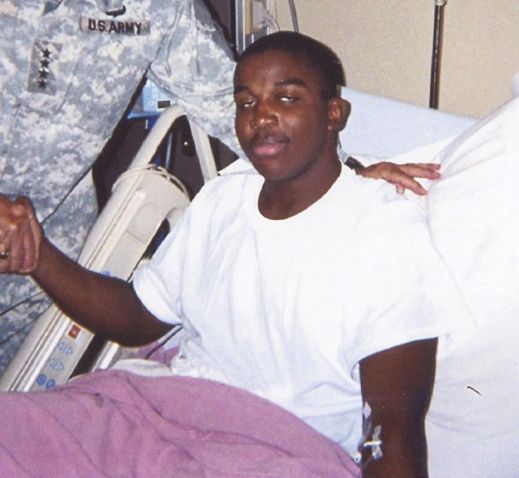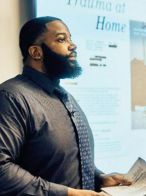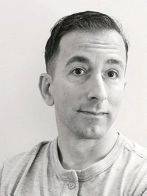return to civilian life. In this unit, I met a group of guys who were also injured and were also prescribed opioids for their pain.
What I found there was a secret black market of sorts, where everyone traded their opioids. If you had something that someone wanted, they would trade you what they have for what you had. Eventually, I started hanging with a group of guys that drank heavily and abused opioids, just like I did. That is when I noticed something. If you hang with people who have the same addiction you have, no one will ever tell you that you have a problem.
One day, one of my good friends was going out to a bar with a separate group of friends. He asked me to come meet him at the bar after I was done hanging out downtown. At around 2 am, I met him and his friends, and I was surprised at what I saw. His face was bruised and bloodied. I thought he'd gotten beat up. But, one of his friends told me that he fell face first, off the curb onto the ground.
When we got him back to his apartment, I stayed with him for a while, but when you see one of your friends inebriated all the time, you get to thinking that they're always going to be okay. This happened on a Saturday night. On Monday at 3 pm, I got the call that my friend was dead.
Since I was not an immediate family member, no one told me the cause of death. It could have been several factors: alcohol poisoning, a mixture of pills and alcohol, or the fall causing bleeding on the brain. All I knew for sure was that I felt like crap. My friend was dead from a death that could have been prevented, if one of us in his group of friends had realized that we all had a problem.
Matters only got worse from there. My unit flew me to his hometown for his funeral, and while I was there, I met his mother. She looked me in my eyes and said, "You were the last one with my son. Tell me what happened to him." Talk about a real
ity check. I felt like garbage. It was at that moment that I knew I was done abusing opioids. Seeing the ripple of emotional pain caused by opioid abuse, shocked me into sobriety. I quit right then and there, cold turkey.
Today, my business Lion Speaking Agency has a mission to help individuals suffering from mental illness. The demographic includes individuals who abuse opioids to cope with their mental, as well as physical pain. We are in a crisis, and it is imperative that individuals know what resources are available to them within their respective communities. •

BEFORE THE FALL: "I had an exceedingly long stay in the hospital — three months total. I had two blood transfusions and 14 surgeries, during which time, I was hooked up to a morphine drip to reduce my pain."
ABOUT THE AUTHORS:

David Kendrick is a Purple Heart veteran and mental health advocate from Rochester, NY. While serving as a Cavalry Scout in the Army, he was shot by a sniper in 2007. After 14 surgeries and battles with opioid and alcohol addiction, he became an advocate for people living with disabilities and those battling mental illness. He is the owner of Lion Speaking Agency, a professional speaking company that focuses on mental health. David travels around the country advocating for mental health in both the veteran and civilian communities. He also serves as a member of the SourceAmerica speakers bureau where he advocates for people living with disabilities to find employment. He wrote a book, Cavalry, about his military experience and its impact on his friends and family. He holds a Master's Degree in Project Management from the Keller Graduate School and is certified in Mental Health First Aid, a certification he uses to help individuals experiencing mental health emergencies.

Nick Benas grew up in Guilford, Connecticut. The author of Mental Health Emergencies, Warrior Wisdom, Tactical Mobility, and co-author of The Warrior's Book of Virtues, Benas is a former United States Marine Sergeant and Iraqi Combat Veteran with a background in Martial Arts (2nd Dan Black Belt in Tae Kwon-Do and Green Belt Instructor in Marine Corps Martial Arts Program). Nick attended Southern Connecticut State University for his undergraduate degree in Sociology and his M.S. in Public Policy. He has been featured for his business success and entrepreneurship by more than 50 major media outlets, including Entrepreneur Magazine, Men's Health, ABC, FOX, ESPN, and CNBC.

Richard "Buzz" Bryan is currently the Outreach Coordinator for the West Palm Beach VA medical center. The co-author of The Warrior's Book of Virtues, Buzz previously served as the OEF/OIF Transition Patient Advocate (TPA) for the Veterans Integrated Service Network (VISN4) based in Pittsburgh, PA for ten years, working specifically with Iraq and Afghanistan veterans. Buzz was a member of the Navy/Marine Corps team and retired from the United States Navy in July 2011 after 22 years of honorable service as a Fleet Marine Force Senior Chief Hospital Corpsman.